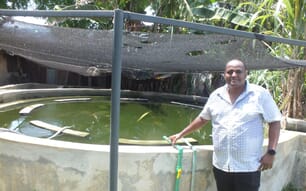What inspired you to take up a career in aquaculture?
I have kept live fish since I was 14 years old. Growing up in Zimbabwe/Rhodesia and spending holidays on Lake Kariba, how could one not be interested in fish?

What have been the most memorable moments of your career to date?
Looking back at the now-operational large-scale fish farms I designed in Mozambique, Burundi, Zambia, Botswana and South Africa, which are now producing tonnes of fish.
Also, having spent 27 years building up my own Rivendell Hatchery into what it is today gives me enormous pleasure. None of it was done with government grants, donor funding or anything other than sheer hard work.
What made you decide to settle at Rivendell and what makes it so unique?
Rivendell in 1989 was a hidden, empty valley with a broken dam, built sometime in the 1800s by the early settlers. It was a real Shangri-La that I was so lucky to find. The potential to rebuild the dam and harness the superb water quality dawned on me when walking there, enjoying its unspoilt scenery.
It was then an unused part of a larger farm, whose charismatic elderly owner I knew, and it got me thinking. A bottle of red wine and an evening visit to him resulted in two empty bottles… and a partnership. Rivendell was then formally sub-divided, and some years later I gained total control.
The valley is pristine, and we have kept it so, controlling any invasive weeds that appear, making it unique in this area of otherwise badly invaded farms. We also control the entire catchment, which rewards us with abundant high-quality water… the envy of all farmers round us. Even during the recent crippling drought in the Eastern Cape, Rivendell’s large dam was still near full – a glittering sheet of water.
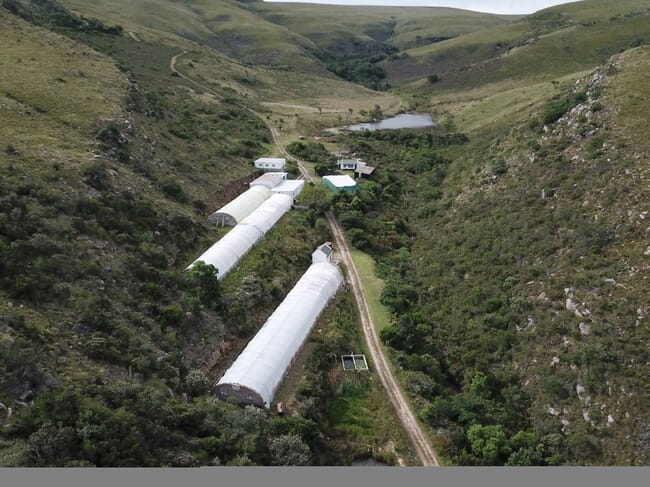
Where are most of your fingerlings sent?
By far the majority of fingerlings are sent to customers within South Africa. But we have had some international shipments to the USA, Mozambique, Swaziland, Switzerland and even one to South Korea where we sent 1,000 tilapia to Busan, which took 48 hours’ travel time in the boxes. The client was delighted to receive 989 healthy live fish.
By and large the ornamental fish are taken by either large pet shops or specialist hobbyists, the latter being a significant part of the business.
What sort of strains do you produce?
Apart from the Lake Malawi cichlids, we breed 80 different species for the ornamental fish trade. We also breed and distribute four Asian-developed strains of genetically improved Nile tilapia (two red, two silver), two strains of Mozambique tilapia (including Rivendell’s well-known Red 6 strain), Tilapia rendalli (now Coptodon rendalli), and Tilapia sparrmanii. Over the 27 years of operation Rivendell has also produced numerous other species – from ornamental livebearers to discus, angelfish and a wide variety of South American cichlids.
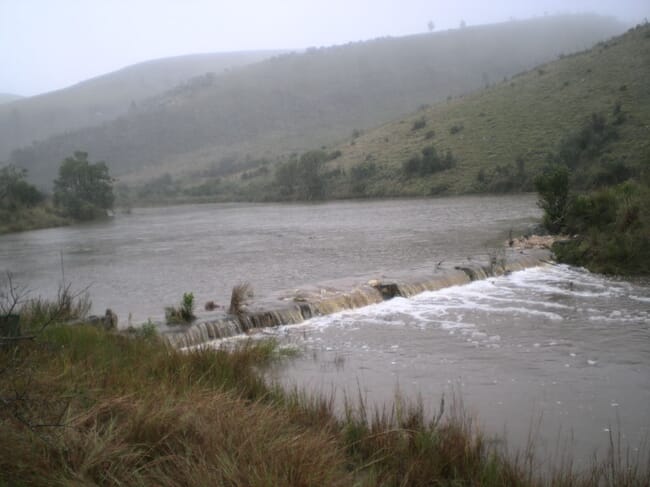
The hatchery facilities are very extensive and diverse, and can accommodate the breeding and rearing requirements of a wide range of freshwater fish. An aquarium room houses 400 glass aquaria. There are 180 concrete tanks inside tunnels with recirculating and filtered water, and a solar-heated breeding room together with four large greenhouse tunnel systems which are used for tilapia and Lake Malawi cichlids. An indoor insulated hatchery provides facilities for sex-reversal of fry and preparation of fish for sale. All this space allows for room to keep strains separate, and space for rearing new broodstock and preventing inbreeding. This is the essential function of a professional hatchery.
What has been the proudest moment of your aquaculture career to date?
Hard to say. Maybe right at the end of my career, having started my career there (from 1989 until 1993), being invited back to the South African Institute of Aquatic Biodiversity here in Grahamstown to run a fieldwork-based project surveying the country’s waters for the presence of Nile tilapia. This was recognition of many years of an often intimate relationship with tilapia!
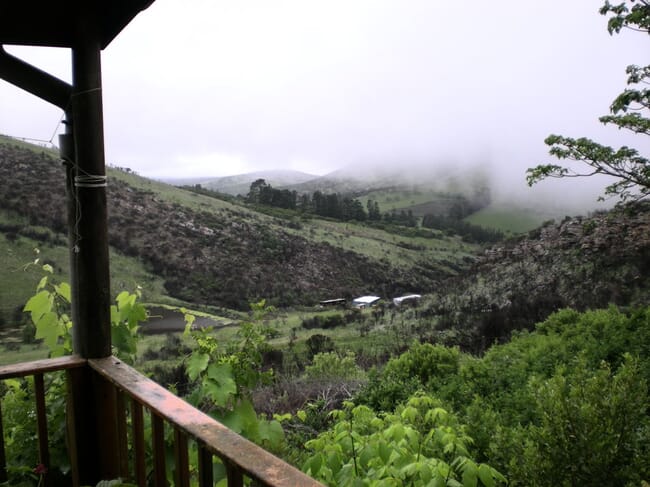
Why have you decided to sell up after 32 years?
The running of a hatchery business is demanding and it is surely time to hand it over to someone with new ideas and more energy who can take the hatchery to new heights, and maybe into new directions. Leaving Rivendell after so many years will be a huge wrench… but I have a new adventure lined up. Retirement is not for slowing down, it is a time to start something new!
What sort of person would the investment suit?
A young person with a passion for fish. The property is also a stunningly beautiful and charismatic place with dramatic cloud effects and a pristine natural forest complete with cliffs and bushmen paintings. So a passion for trees (of which we have planted over 400), landscapes, measuring the rainfall, walking, flowers and conserving the landscape is essential, quite apart from the fish side of things.
The hatchery is built to be very adaptable to a wide range of uses, so anyone with imagination will do well. As the tilapia aquaculture sector develops in South Africa, the need for quality fingerlings will increase many times from what it is now. As a completely professional hatchery, Rivendell is well positioned to take advantage of this increased demand.
A person with an interest in aquaponics would also have all the foundations in place to develop new lines to the business, incorporating plant-growing structures based on the effluent wastes from the current facility.
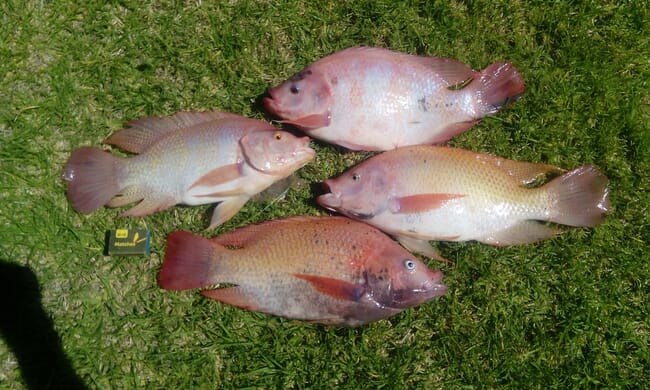
What would your advice be to the new owner?
Be prepared to learn to do everything yourself: be fish farmer, builder, electrician, plumber, biologist and business manager – then you will really do it well. And only then will you be in a position to tell others how it should be done. Be humble and not bombastic about your knowledge. Getting your own hands wet is essential.
What challenges await once you’ve sold up?
Starting a completely new life in a different place away from my beloved Rivendell. The security of having the valley, the fish business, the incomparable view away towards the sea from the house, the ancient forest to walk in when things are tough, the moods of the valley, the mist pouring in over the mountain and the pleasures of successfully delivering countless live fish to delighted clients over the years will be missed. Owning a farm, especially a special place like Rivendell, is a way of life, it is not a job for 8 to 5.
Having built the entire infrastructure myself over 32 years, it will be hard to leave. That is why a new, exciting adventure is a must.




